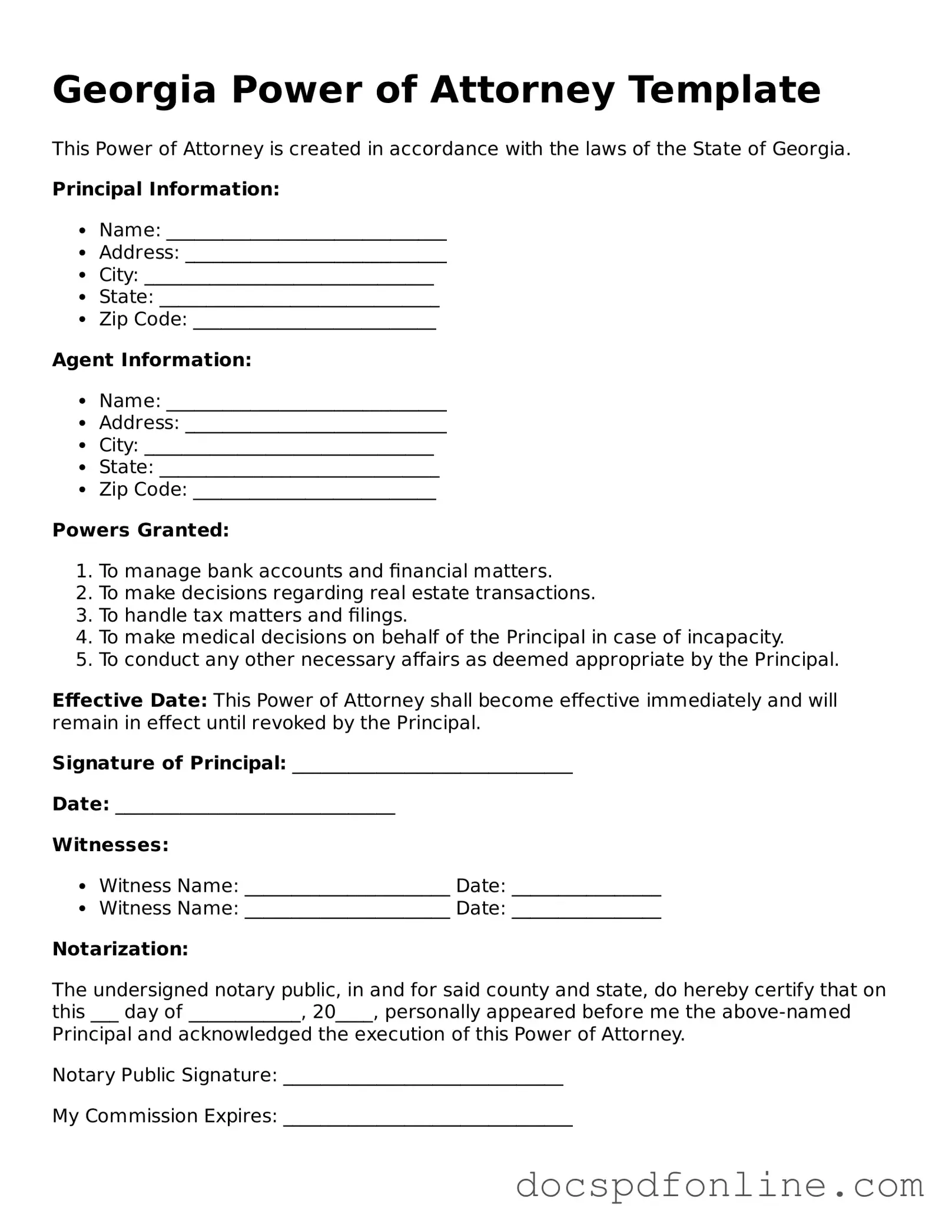Legal Power of Attorney Template for Georgia
A Georgia Power of Attorney form is a legal document that allows an individual, known as the principal, to designate another person, referred to as the agent or attorney-in-fact, to make decisions on their behalf. This form can cover a wide range of matters, including financial and healthcare decisions. Understanding its provisions is essential for anyone considering this important legal tool.
Launch Editor Now

Legal Power of Attorney Template for Georgia
Launch Editor Now
Save time — finish this form fast
Finish Power of Attorney online — edit, save, download made easy.
Launch Editor Now
or
↓ PDF File
